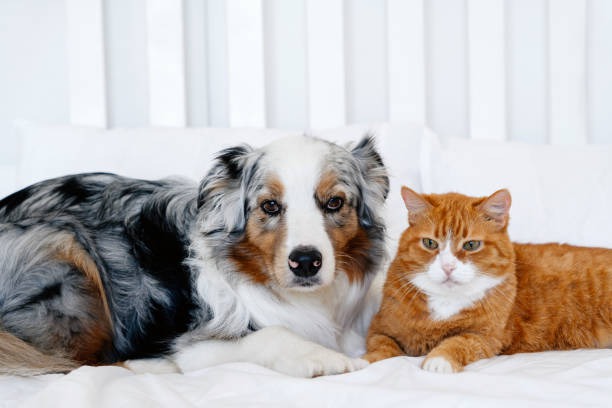Preparing for your pet’s first visit to the veterinary clinic can feel daunting. Whether you’re a seasoned pet owner or a first-time fur parent, ensuring your beloved companion is comfortable and stress-free is paramount. This comprehensive guide will walk you through the entire process, offering practical tips and insights to make your pet’s first vet visit as smooth as possible.
Understanding the Importance of an Early Visit
Starting vet visits early in your pet’s life helps catch potential health issues before they become serious but also aids in socializing them to the veterinary environment. An early introduction can significantly decrease stress in future visits, making it a positive experience for you and your pet.
Before the Visit
Preparation is critical to a successful vet visit. Here are some steps to get you started:
-
Carrier Familiarization: If your pet requires a carrier, ensure they’re comfortable with it. Leave it open in your house with a comfy bed so your pet can explore it at their own pace.
-
Car Rides: If the vet clinic requires a car journey, take your pet on short drives beforehand. This helps them get used to the motion and sound of the vehicle.
-
Handling Practice: Handle your pet daily, touching places the vet will likely examine. This includes their ears, mouth, paws, and belly.
-
Play Vet: Simulate vet visits at home. Use a toy stethoscope to mimic a vet’s examination, making it a positive experience with plenty of treats and praise.
Choosing the Right Veterinary Clinic
It is finding a veterinary clinic that meets your and your pet’s needs. Look for a clinic that communicates well, has good reviews, and possesses a clean and welcoming environment. It’s also beneficial to visit the clinic beforehand to gauge the atmosphere and meet the staff.
During the Visit
Once the big day arrives, there are several ways to ensure everything goes smoothly:
-
Bring your pet’s favorite toy or blanket to offer comfort.
-
Arrive early to give your pet time to acclimate to the new environment.
-
Maintain a calm and positive demeanor, as pets often pick up on their owner’s emotions.
-
Bring any medical records and a list of questions or concerns.
Vaccinations play a pivotal role in your pet’s health regimen, protecting against various diseases. Discussions about pet vaccinations are essential during the first vet visit. Your vet will recommend a vaccination schedule based on your pet’s species, age, health condition, and lifestyle. Following this schedule is crucial to ensure your pet’s long-term health and well-being.
Pet’s First Health Check
The first vet visit usually includes a thorough health examination, weighing, and possibly baseline blood work, depending on the pet’s age and health status. This visit is also an excellent opportunity to discuss dietary needs, exercise, and behavioral concerns.
Dental care is an integral part of your pet’s overall health, and sometimes, the services of a pet dentist may be necessary. These specialists focus on preventing, diagnosing, and treating diseases pertaining to the pet’s dental health, ensuring your furry friend maintains a healthy mouth. Discuss dental care practices with your vet and ask if a referral to a vet dentist is advisable for your pet’s specific needs.
Caring for the Young
Young pets, such as puppies or kittens, have unique medical and behavioral needs that require specialized attention. Finding a veterinary clinic with expertise in young animals, specifically a puppy or kitten vet, is crucial. They can provide tailored vaccinations, dietary advice, and developmental monitoring to ensure your kitten grows healthy and strong.
After the Visit
After the initial visit, monitor your pet for signs of stress or discomfort. Offering extra cuddles, treats, or playtime can help alleviate any negative associations with the vet. Remember to schedule follow-up visits as your veterinarian recommends to keep your pet healthy.
Planning Future Visits
Planning future vet visits is crucial for your pet’s continuous health and well-being. As pets become more familiar with the process and environment of vet visits, the overall experience can become less stressful for both the pet and the owner. Here are some strategies to ensure future visits are as smooth as possible:
-
Continue Practicing Positive Reinforcement: Use treats, praise, and affection to reward your pet during and after vet visits. Associate the vet visit with positive experiences to build a positive connection in your pet’s mind.
-
Maintain Familiarization Techniques: Regularly conduct mock vet exams at home to get your pet used to being handled as it would be by a vet. Consider drive-by or walk-in visits to the vet’s office without an appointment, allowing your pet to experience the space without the stress of a medical exam.
-
Plan and Schedule Visits in Advance: Schedule appointments when your pet is usually calm. Avoid peak hours to minimize your pet’s exposure to other animals, which can be an additional source of stress.
By fostering a positive association with vet visits and actively working to reduce anxiety, pet owners can significantly improve the experience for their furry companions. Regular and proactive communication with your vet will ensure your pet receives the best care tailored to their needs.
Final Thoughts
Preparing your pet for their first veterinary clinic visit may seem overwhelming, but proper planning and preparation can become a positive milestone in your pet’s life. Remember, the goal is to get through the visit and lay the groundwork for a lifetime of positive health experiences. Following the tips outlined in this guide ensures that your pet’s first vet visit is just the beginning of a long, happy, and healthy relationship with their veterinary care provider.


